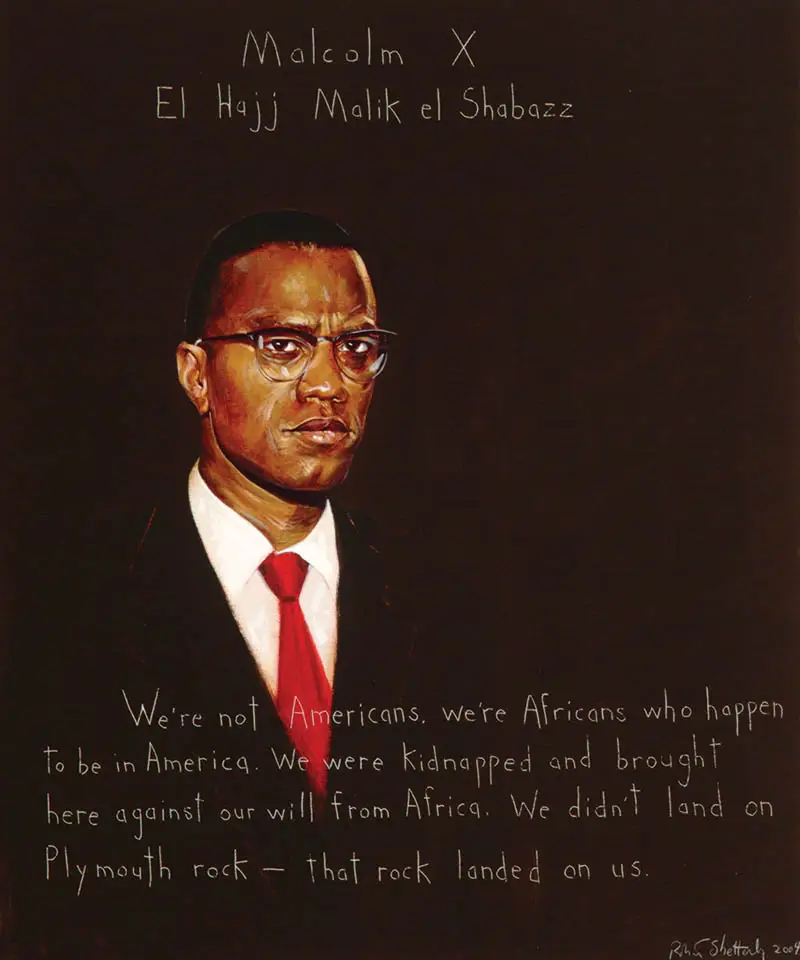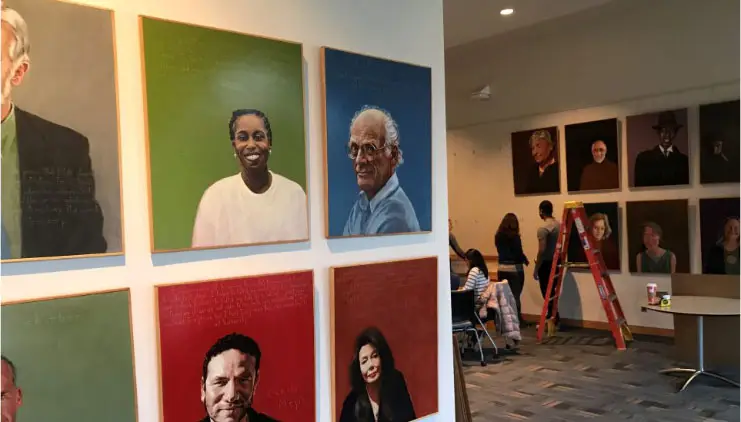
Malcolm X
Black Nationalist, Muslim Leader : 1925 – 1965
“We’re not Americans, we’re Africans who happen to be in America. We were kidnapped and brought here against our will from Africa. We didn’t land on Plymouth rock – that rock landed on us.”
Biography
Malcolm X was born Malcolm Little in Omaha, Nebraska. His father, Earl, a Baptist minister and follower of the Black Nationalist Marcus Garvey, was under continuous threat from the Ku Klux Klan. The family moved to Lansing, Michigan, where their house was burned by white racists in 1929, and, in 1931, Earl was purportedly murdered by white racists. A few years later, Malcolm’s mother suffered a nervous breakdown, and her seven children were sent to various foster homes.
The top student and only African American in his eighth grade class, Malcolm dropped out of school after his teacher told him that a “nigger” could never become a lawyer – his dream. He went to Boston to live with his sister Ella and turned to crime. He became a street hustler and, in 1946, was arrested and sentenced to eight to ten years. While incarcerated, he began a period of education and self-transformation. Later he joined the Nation of Islam, a Black supremacist group headed by Elijah Muhammad. He took X as his last name, signifying his unknown African tribal name, which had been lost when his family was given the slave name Little.
After his parole, in 1952, Malcolm X became a brilliant and charismatic speaker, building the Nation of Islam from four hundred members to thirty thousand members. In 1964, he broke with the Nation of Islam and in 1965 formed the Organization of Afro-American Unity. Journeying to Mecca, the holiest of Muslim cities, he took the name El-Hajj Malik El-Shabazz, and began speaking of international black consciousness and integration rather than racial separatism. His change of views targeted him for assassination by some members of the Nation of Islam.
While preparing to speak in a Harlem ballroom on February 21, 1965, Malcolm X was shot and killed. Three men from the Nation of Islam were arrested for his murder. It is still unclear what role the New York City Police Department and the FBI, which had Malcolm X under surveillance, may have played in his death.
Historians consider Malcolm X among the half-dozen most influential African American leaders. His book, The Autobiography of Malcolm X, written with Alex Haley and published posthumously, is considered one of the most important non-fiction books of the twentieth century. Many Black people felt that Malcolm X, by voicing the truth of their frustration and anger, gave them courage and self-respect. He told African Americans that they had to stop defining themselves as whites had defined them as subservient and inferior. His message was one of strength, pride, and truth.
Programs
Americans Who Tell the Truth (AWTT) offers a variety of ways to engage with its portraits and portrait subjects. Host an exhibit, use our free lesson plans and educational programs, or engage with a member of the AWTT team or portrait subjects.

Education
AWTT has educational materials and lesson plans that ask students to grapple with truth, justice, and freedom.

Exhibits & Community Engagement
AWTT encourages community engagement programs and exhibits accompanied by public events that stimulate dialogue around citizenship, education, and activism.